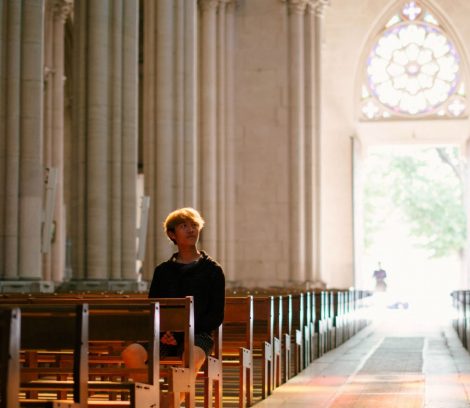
Why We Deserve Respect
Thomas Meagher was an Irish revolutionary whom the British sentenced to death. But his hanging was commuted at the last minute, and he was “transported” to a penal colony in Australia. He subsequently escaped and fled to the U.S. where he eventually became a general in the American Civil War of 1861-65.
Meagher’s fascinating but tragic life is described in a book by Timothy Egan called “Immortal Irishman,” which I recently finished reading and which I highly recommend. Among other things, it refreshed my memory about the indescribably disastrous Irish potato famine, which lasted from 1846 to 1852. It’s called the “potato” famine because rural Ireland had become fatally dependent on the potato as its principal food staple, and its harvest rotted in the fields over a period of several years.
The Irish had been under the thumb of the British for at least 400 years, and the book hellishly describes the attitude of British officials toward the estimated one million people who starved to death and the estimated one million who were forced to emigrate.
“Inherently Defective Character”
The British authorities, says the book, believed that the Irish “deserved their fate” because of their typically large families and their “inherently defective character.”
“The Irish are a ‘selfish, perverse and turbulent people,’” declared Charles Trevelyan, the British assistant treasury secretary who was charged with Irish famine relief, of which there was little to none. He complained of Irish “excessive breeding,” seeing the famine as “a culling, nature at work.”
The book draws comparisons with how blacks were viewed – and still are – by many Americans. Incredibly, the majority of Irish immigrants in the Northeast and the South – people who had to flee their own country because of their image as less than human – failed to support the emancipation of American slaves.
And even more incredibly, racism – which the dictionary defines as “racial or ethnic prejudice or intolerance” – is alive and well in our society, and in our churches and schools. And, to me, it’s one of the most obvious obstacles to the search for God.
Pitiful Record
My own Catholic faith has had a pitiful record in promoting racial equality. But together with many other faiths, it has awakened to racism’s evils and acknowledged the sin of individual and institutional racism.
Pope Francis has often condemned racism, especially within the church, and, unlike many local bishops and clergy, has included biases against people with different sexual orientations among “racial” sins.
Says a document of Vatican II, the worldwide meeting of Catholic bishops in the early 1960s: “The Church reproves, as foreign to the mind of Christ, any discrimination against (people) or harassment of them because of their race, color, condition of life, or religion.”
A pastoral letter last month by Archbishop Nelson Pérez of Philadelphia declared that “to combat racism, we must embark on a journey of conversion that will require prayerful reflection, unflinching examination of conscience, and a commitment to unlearning conscious and unconscious biases that may have taken root in each of us.”
Far From Alone
The Catholic Church is far from alone among Christian churches in condemning racism.
An initiative of the National Council of Churches urges the NCC, its members and partners “to awaken to the many manifestations of white supremacy and racism especially in the church, to confront the need for change, and to work to transform church and society into a reflection of the inclusive and equitable reign of God.”
The search for God involves prayer and study, in my opinion, but perhaps more important is the attempt to be “God-like,” eliminating our racist tendencies and trying to see others as God sees us. God’s view, according to the Bible and the beliefs of most religions today, accounts for the belief that all human beings have a dignity that deserves protection and respect.




